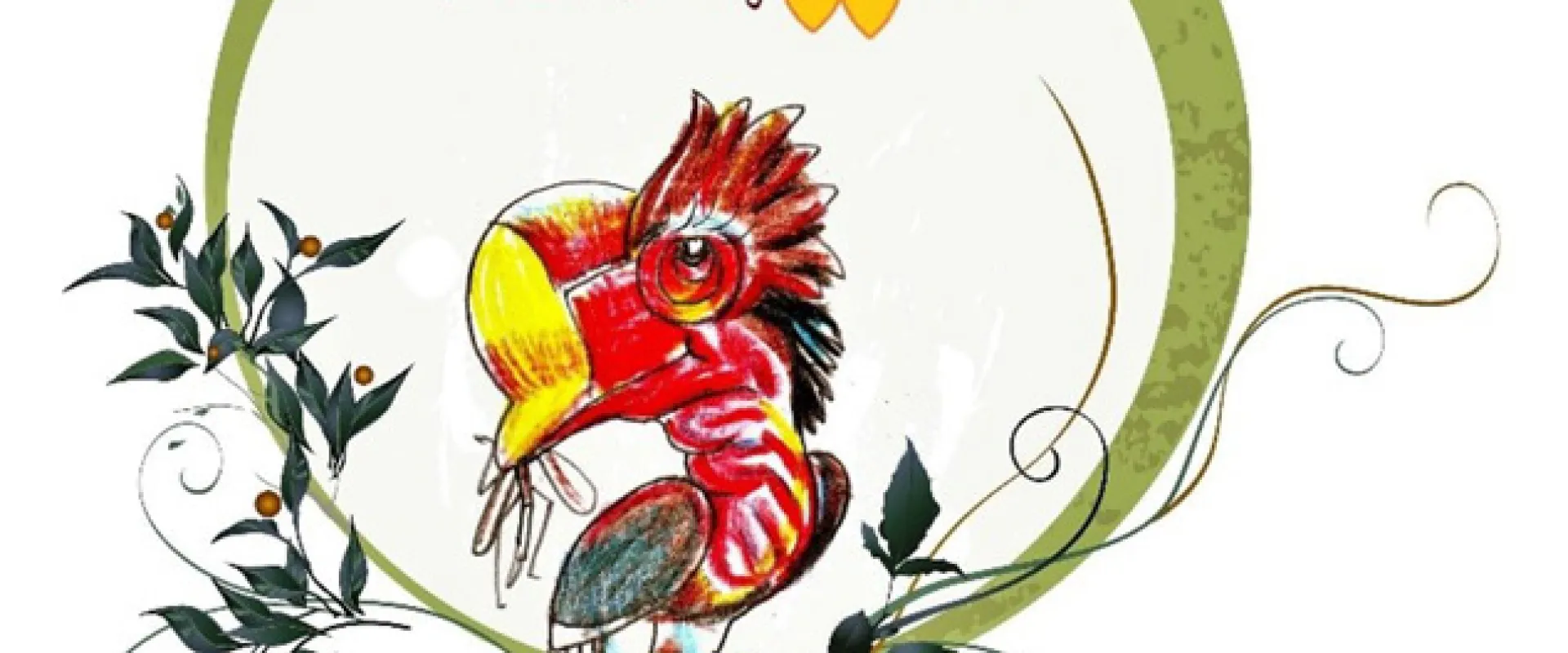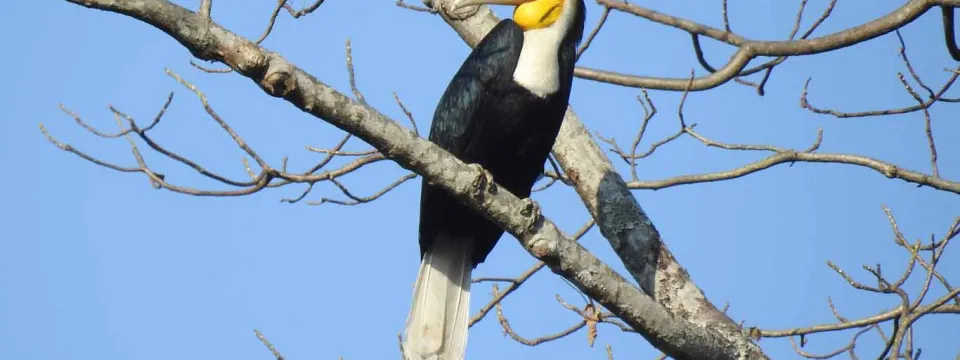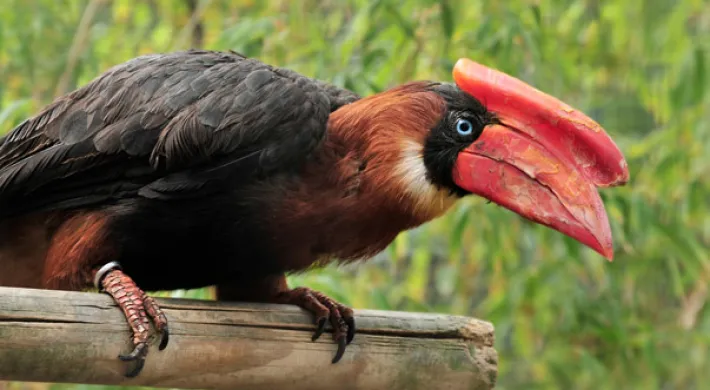Written by Roger Sweeney, Director of Animal Management & Welfare, North Carolina Zoo
Asian hornbills are some of the largest and most striking birds found anywhere on our planet. These unique birds highlight the diversity of birdlife in Asian forests and illustrate the essential role that many birds play as seed-dispersers in maintaining the health of rainforest ecology. They are affectionately described as the 'gardeners of the rainforest.' They make perfect conservation flagship species to increase awareness about the rich biodiversity in these unique ecosystems
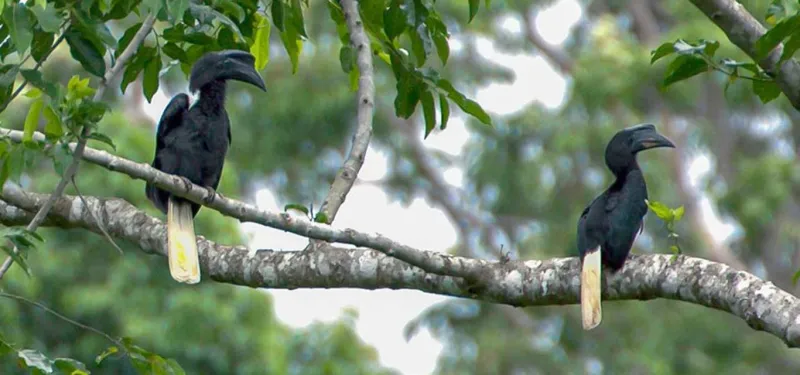
Northern Rufous Hornbill
Most larger hornbills are highly dependent on the continued existence of primary rainforest so that they can continue to find enough mature trees large enough to provide nest cavities for breeding, so their future is entwined with the integrity of remaining areas of undisturbed rainforest throughout their range.
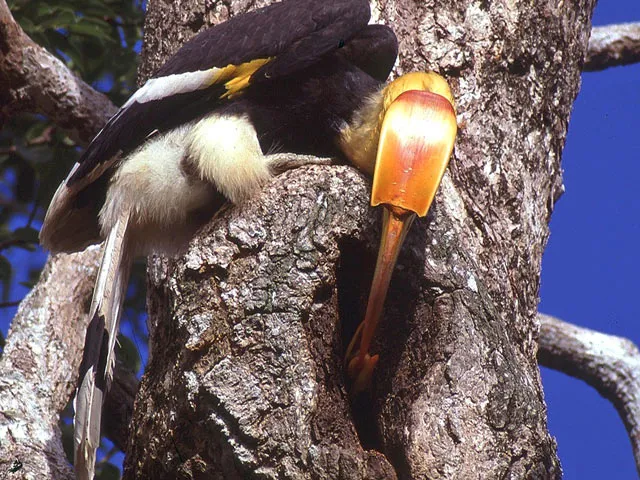
Male Great Hornbill feeding chick in Thailand
Thailand is home to 13 hornbill species and has been a focal point of hornbill research and conservation in recent decades, particularly since the Hornbill Research Foundation's formation, based at Mahidol University's Faculty of Science in 1993. In 1997, the foundation organized the first Love Hornbills Day celebration in Thailand. It chose February 13th because it is close to the day when people celebrate love and affection. Hornbills are regarded as a symbol of eternal love and fidelity, as they are monogamous and mate for life. The annual festival aims to educate the public about the bird, promote the foundation's conservation projects and raise funds.
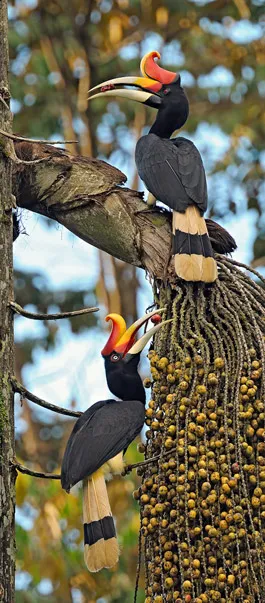
Rhinoceros Hornbill pair subspecies B.r. borneonisis
In the more than 20 years since the day before Valentine's Day has continued to be celebrated as "Love Hornbills Day" in Thailand to publicize and disseminate knowledge about the importance of hornbills and nature conservation. Although this initiative started in Thailand more than 20 years ago, Love Hornbills Day is now more widely embraced and celebrated throughout more Asian countries each year.
Pictured Above: Male Wreathed Hornbill
In 2020, the Association of Zoos & Aquariums (AZA) approved the formation of a new Asian Hornbill SAFE Program, for which I am excited to be the Program Leader. The acronym SAFE stands for 'Saving Animals from Extinction,' and these programs represent the species of highest conservation importance for North American Zoos. The zoos that form the new Asian Hornbill SAFE program are involved in implementing many conservation actions in Asian countries, including conservation planning workshops, nest protection, and habitat enhancement, and community-based conservation achieved by promoting sustainable livelihoods and food security and education.
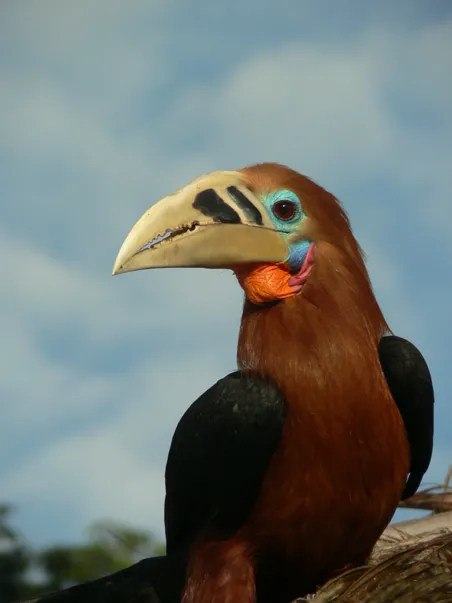
Rufous-necked hornbill
As we seek to increase awareness about this amazing group of birds and their interrelatedness to rainforest conservation, we look to bring Love Hornbills Day into the calendars of more people in North America and other western countries. Love Hornbills Day is a chance to reflect on our collective love of the natural world and appreciate those species that play an essential role in maintaining some of the most unique ecosystems found on our planet. Please join us on February 13th, and spend some time appreciating the unique diversity and beauty that still exists in the remaining rainforests of Asia.
Feature Image: Love Hornbills Day logo, credit Hornbills Research Foundation
